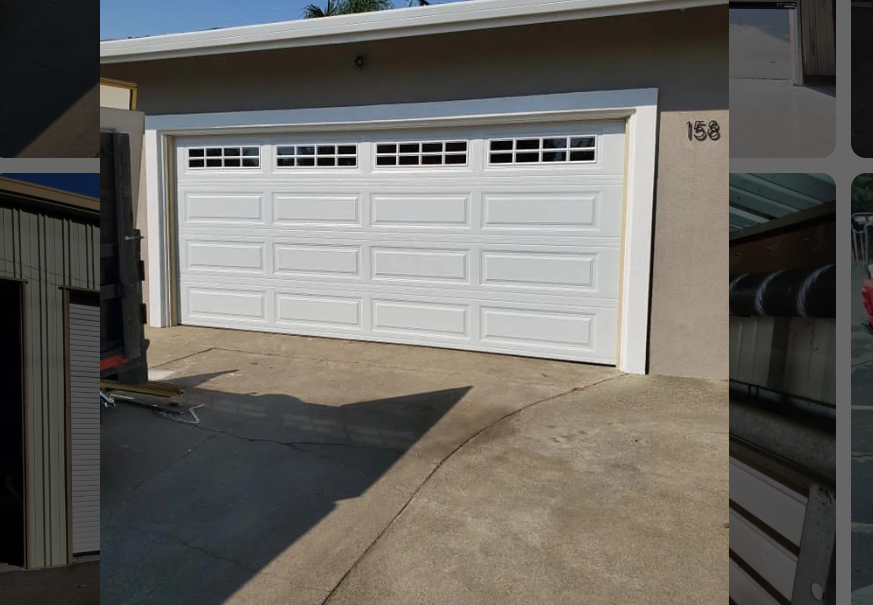Imagine getting ready for work on a rainy Monday morning. Coffee in hand, coat zipped, you hit the button to open your garage—and nothing happens. The power is out. And your garage door? Stuck. This is where backup systems become more than a convenience—they’re your way forward.
When it comes to garage doors, backup options ensure you’re never left stranded. Whether it’s power failure, battery issues, or mechanical problems, having a reliable system in place can save time, money, and plenty of frustration. Let’s explore the most dependable backup solutions available today and how they keep your daily routine on track.
If you rely on an automatic garage door opener, having a backup plan isn’t optional—it’s part of the system’s long-term reliability.
Why Garage Door Backups Matter
Garage doors are often the largest moving object in a home. They’re heavy, mechanically complex, and frequently used. In areas with unpredictable weather or older electrical grids, power outages are more common than most homeowners expect.
Without a backup option:
- Your vehicle may be trapped.
- Manual override could be dangerous or difficult for some.
- Home access becomes more difficult, especially for those with mobility issues.
That’s why many manufacturers now offer built-in solutions to avoid such problems altogether.
Battery Backup Systems
One of the most popular and practical options today is the battery backup system. This simple device ensures that your garage door opener works even when the power goes out.
How It Works
A battery backup is a rechargeable battery unit installed inside or alongside your garage door opener. When power is available, the battery charges automatically. During a power outage, it kicks in instantly.
Key Benefits
- Automatic activation – No buttons to push, no settings to adjust.
- Typically lasts 24 hours or more – Enough for most outages.
- No interruption – You can still open and close your garage door up to 20 times.
Is It Right for You?
If your home experiences frequent power outages, a battery backup should be considered a must-have. It’s especially helpful for homes with elderly residents or where the garage is the primary entrance.
Manual Release Cord
Every modern garage door opener includes a manual release mechanism—usually a red cord hanging from the opener rail. This allows you to disengage the door from the opener and operate it manually.
How and When to Use It
- Pull the red cord only when the door is fully closed, to prevent sudden movement.
- Once disengaged, you can lift the door by hand.
- Re-engage the opener by pushing the door back onto the rail until it clicks.
When It’s Useful
- During battery failure
- In the event of a damaged motor
- When the opener’s internal components break
Manual release is a backup that never runs out of power—but it does require physical strength. For older users or households with small children, it may not be the most convenient long-term solution.
Solar Backup Solutions
If you’re interested in renewable energy, solar-powered backup systems are an option. Some garage door openers can be connected to small solar panels that keep the battery charged independently of the power grid.
Pros
- Environmentally friendly
- Perfect for rural or off-grid homes
- Long-term energy savings
Cons
- Higher initial cost
- Needs direct sunlight for efficiency
- Limited compatibility with all opener models
Still, for tech-savvy homeowners looking to reduce their energy footprint, this option offers an innovative twist on staying prepared.
Smart Garage Door Systems
Smart openers do more than connect to your phone—they also offer real-time updates and remote control. Some models can even notify you of battery levels or mechanical issues before they become a problem.
What’s Included
- App-based control for iOS/Android
- Remote diagnostics
- Scheduled operations
- Integration with home assistants like Alexa or Google Assistant
These features are especially helpful when you’re away from home and need to let someone in or check the door’s status during a storm.
Surge Protectors for Garage Doors
Electrical surges—especially from lightning—can damage your garage door opener’s internal electronics. Adding a surge protector to your system is another smart move to keep things running smoothly.
What It Does
- Diverts excess voltage away from your garage door system
- Prevents sudden failures after power restoration
- Can be installed in minutes
Combined with a battery backup, this is a powerful duo that keeps your opener protected from both ends of a power event—loss and surge.
Portable Power Stations
If you’re looking for a portable, flexible solution, consider keeping a portable power station in your garage. These are compact battery packs that can power various devices, including a garage door opener.
Ideal For:
- Emergency use during extended blackouts
- Off-grid properties or vacation homes
- Homes without integrated battery backups
Some models also offer solar recharging, giving you a hybrid option that’s effective even during prolonged power outages.
Maintenance: The First Line of Defense
While having backups is essential, regular garage door maintenance is equally important. A well-maintained system is less likely to fail and more likely to perform even in emergencies.
Tips for Preventing Common Issues
- Lubricate moving parts every 6 months
- Test the battery backup monthly
- Inspect cables and rollers for wear
- Keep the area around the door clear of debris
Regular checkups by a professional technician can catch problems before they become serious. This proactive approach means your backup systems won’t be the only thing keeping you moving—they’ll be your safety net, not your main defense.
When to Upgrade Your System
If your opener is over 10 years old, it might be time to consider a newer model. Modern openers come standard with battery backups and advanced features. Upgrading gives you:
- Quieter operation
- Better safety sensors
- Smartphone integration
- Energy-efficient motors
And most importantly—a built-in backup system that gives you peace of mind.
Planning Ahead Saves Time Later
No one wants to be stuck during a storm or miss work because their garage door won’t budge. By choosing the right backup options now, you’re avoiding future stress and frustration.
Backup systems might not seem exciting, but they’re a small investment for a lot of reliability. Think of them as insurance for your routine—something that keeps you going when the unexpected happens.
If you’re unsure which system fits your needs best, it’s a good idea to reach out to a local expert. For professional help, installation, or an upgrade consultation, visit garage door services Bullock Garage Doors. Their team can guide you to the most reliable solutions tailored to your specific garage setup.



